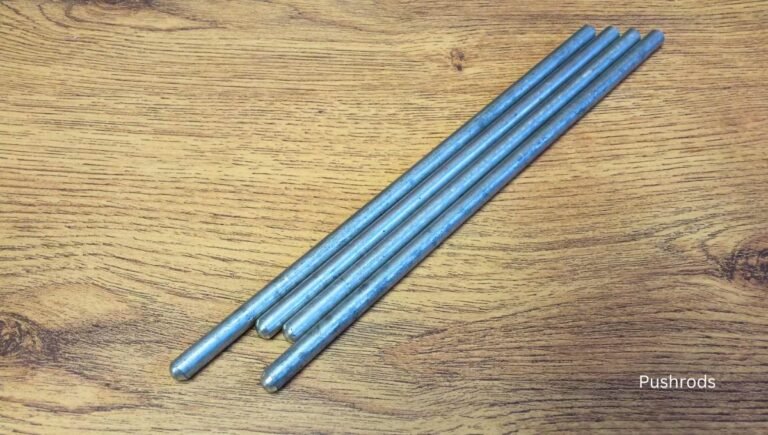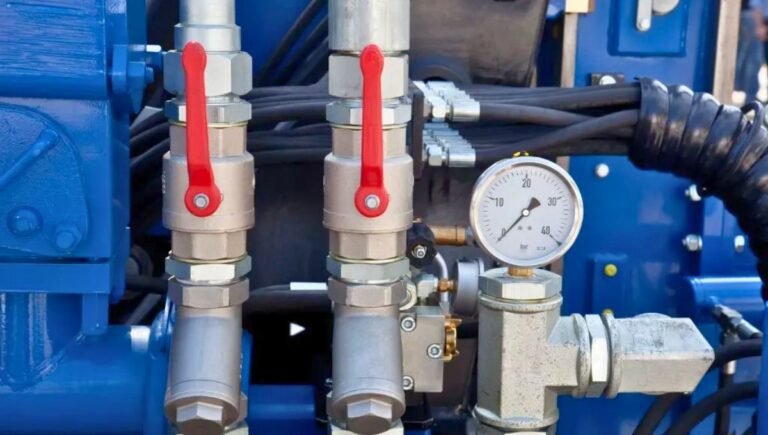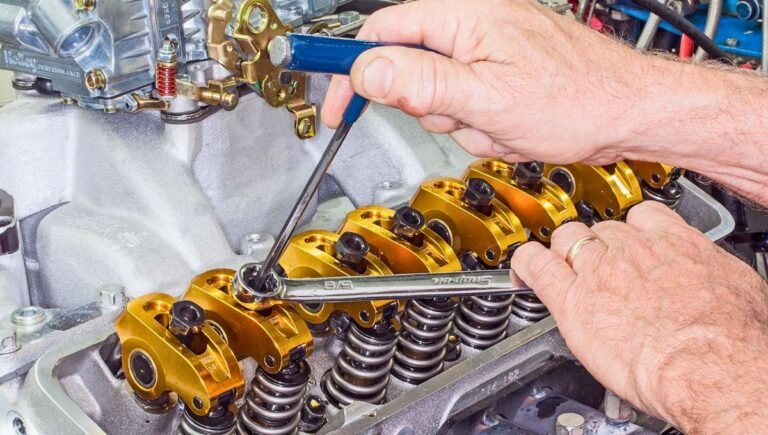What Is Hydraulic Fluid For And Why Is It Important In 2024?
Hydraulic fluid is a liquid used to transfer power in hydraulic systems. It lubricates components and reduces wear.
Hydraulic fluid is essential for the efficient operation of hydraulic systems found in various machinery and equipment. This fluid not only transfers power but also acts as a lubricant, reducing friction and wear in components. It prevents corrosion, ensures smooth operation, and helps dissipate heat generated during system activity.
Hydraulic fluid must maintain its properties under varying temperatures and pressures to ensure reliability. Proper selection and maintenance of fluid are crucial for the longevity and efficiency of hydraulic systems. Regular checks and timely replacements help avoid system failures and costly downtimes. Understanding the types and functions of fluid enhances system performance and operational safety.
What Is Hydraulic Fluid For And Why Is It Important?
Hydraulic fluid powers hydraulic systems, ensuring smooth operation and efficient energy transfer. It lubricates components, reduces wear, and prevents rust. Essential for various industries, it keeps machinery functioning reliably.

Hydraulic fluid is vital for the efficient operation of hydraulic systems. It acts as the lifeblood, enabling machinery to perform its functions smoothly. Let’s dive into what makes fluid essential and its various applications.
The Role Of Hydraulic Fluid
Hydraulic fluid is a critical component in hydraulic systems. It serves multiple purposes, each integral to the system’s functionality:
- Lubrication: Reduces friction between moving parts, preventing wear and tear.
- Heat Transfer: Dissipates heat generated during operation, maintaining optimal temperatures.
- Power Transmission: Transmits power from one part of the system to another.
- Contamination Control: Captures and suspends contaminants, keeping the system clean.
Why Hydraulic Fluid Is Important
Without hydraulic fluid, machinery would face severe operational issues. The importance of fluid can be summarized in several key points:
- Efficiency: Enhances the efficiency of hydraulic systems by reducing energy loss.
- Longevity: Extends the lifespan of components by minimizing friction and wear.
- Precision: Ensures accurate and smooth operation of machinery.
- Safety: Maintains system integrity, preventing malfunctions and potential hazards.
Applications Of Hydraulic Fluid
Hydraulic fluid finds use in a wide range of industries and applications. Here’s a closer look at where it’s commonly utilized:
- Construction Equipment: Powers excavators, bulldozers, and cranes for efficient operation.
- Automotive Systems: Used in power steering and brake systems for smooth control.
- Industrial Machinery: Drives presses, lifts, and other heavy machinery.
- Aviation: Essential in aircraft hydraulic systems for reliable performance.
Choosing The Right Hydraulic Fluid
Selecting the appropriate fluid is crucial for optimal system performance. Consider the following factors when making your choice:
- Viscosity: Ensures proper flow and lubrication under varying temperatures.
- Additives: Enhances properties like anti-wear, anti-foaming, and corrosion resistance.
- Compatibility: Matches the specific requirements of your machinery and system components.
- Environmental Impact: Opt for eco-friendly fluids to minimize environmental harm.
Hydraulic fluid is indispensable for the smooth and efficient functioning of hydraulic systems. Proper understanding and selection of fluid can significantly enhance performance and longevity.
How To Choose The Right Hydraulic Fluid (or Hydraulic Oil)
Selecting the right fluid involves considering viscosity, operating temperature, and compatibility with system materials. Consult the equipment manual for specifications. Ensure the fluid meets industry standards for performance and safety.
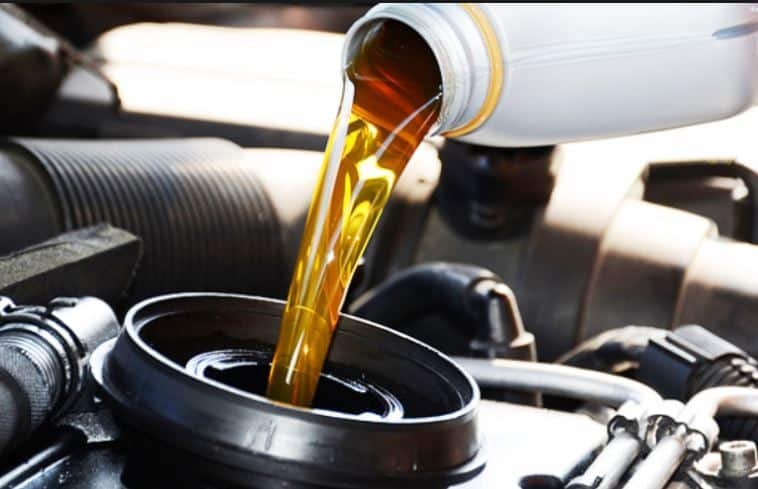
Choosing the right fluid can be a game changer for your machinery’s performance and longevity. Hydraulic fluids, also known as hydraulic oils, are essential for efficient operation. Selecting the correct type ensures smooth functioning, reduces wear and tear, and extends the lifespan of your equipment.
Understand Your Equipment’s Requirements
Each piece of machinery has specific needs. Consult the equipment’s manual to find recommended fluid types.
- Manufacturer guidelines: Follow the recommended fluid.
- Operating conditions: Match the fluid to temperature and pressure conditions.
- Viscosity requirements: Ensure the fluid meets the viscosity grade specified.
Consider The Operating Temperature
Temperature plays a crucial role in fluid performance. Different fluids behave differently under temperature variations.
- Cold environments: Use low-viscosity fluids to ensure fluidity.
- High-temperature environments: Opt for high-viscosity fluids to maintain stability.
- Multi-grade fluids: Suitable for varying temperatures, offering flexibility.
Evaluate The Fluid’s Viscosity
Viscosity impacts the fluid’s ability to lubricate and transfer power. The right viscosity ensures optimal performance.
Selecting the appropriate viscosity involves:
- Matching with equipment’s specifications: Use the viscosity grade listed in the manual.
- Considering temperature range: Fluids should perform well in expected temperature ranges.
- Checking fluid stability: Ensure the viscosity remains consistent over time.
Assess Fluid Additives
Additives enhance fluid performance by providing additional benefits. They can improve lubrication, reduce wear, and prevent oxidation.
Key additives to consider:
- Anti-wear agents: Protect against friction and wear.
- Rust inhibitors: Prevent rust and corrosion in metal components.
- Oxidation stabilizers: Extend the fluid’s lifespan by preventing oxidation.
Evaluate Environmental Impact
Environmentally friendly hydraulic fluids reduce environmental harm. Bio-based and biodegradable options offer benefits without compromising performance.
Consider these points for environmentally friendly options:
- Bio-based fluids: Derived from renewable sources, reducing carbon footprint.
- Biodegradable fluids: Break down naturally, minimizing environmental impact.
- Regulatory compliance: Ensure the fluid meets environmental regulations.
Choosing the right fluid involves understanding your equipment’s needs, operating conditions, and environmental impact. The right choice can significantly enhance performance and durability.
What Is Hydraulic Fluid Made Of?
Hydraulic fluid consists of base oils, additives, and various chemicals. These components ensure optimal performance and protection in hydraulic systems.

Hydraulic fluid is essential for the smooth operation of hydraulic systems. It powers various machinery, ranging from industrial equipment to automotive brakes. But what exactly is fluid made of? Let’s dive into its composition to understand this better.
Base Oils
Hydraulic fluid primarily consists of base oils. These oils serve as the foundation of the fluid, providing the necessary lubrication and heat transfer properties.
- Mineral Oils: Derived from refining crude oil.
- Synthetic Oils: Created through chemical processes for enhanced performance.
- Biodegradable Oils: Made from vegetable oils for environmentally friendly options.
Additives
Additives are mixed into fluid to enhance its performance. They ensure the fluid operates effectively under various conditions.
- Anti-wear Agents: Reduce friction and wear in hydraulic components.
- Corrosion Inhibitors: Protect metal surfaces from rust and corrosion.
- Foam Inhibitors: Prevent foam formation that can disrupt hydraulic operations.
- Viscosity Modifiers: Maintain the fluid’s thickness across different temperatures.
Water Content
Some hydraulic fluids contain a certain amount of water. This can be advantageous or detrimental, depending on the application’s specific needs.
Water-based hydraulic fluids offer benefits like fire resistance but may lead to corrosion if not properly managed.
Detergents
Detergents in hydraulic fluids keep the system clean. They help in removing contaminants and preventing deposits.
- Dispersants: Suspend contaminants to prevent sludge formation.
- Oxidation Inhibitors: Extend the fluid’s life by preventing oxidation.
Anti-foaming Agents
Anti-foaming agents play a crucial role in hydraulic fluids. They prevent foam formation, which can impair the system’s efficiency.
These agents ensure smooth fluid flow, reducing the risk of cavitation and air entrapment.
Understanding these components helps in selecting the right fluid for specific applications. Each element plays a vital role in ensuring hydraulic systems run smoothly and efficiently.
How Does Hydraulic Fluid Work?
Hydraulic fluid transfers power within hydraulic systems by flowing through valves and pumps, creating pressure that moves actuators and motors. This fluid also lubricates components, reduces wear, and dissipates heat, ensuring smooth operation of machinery.
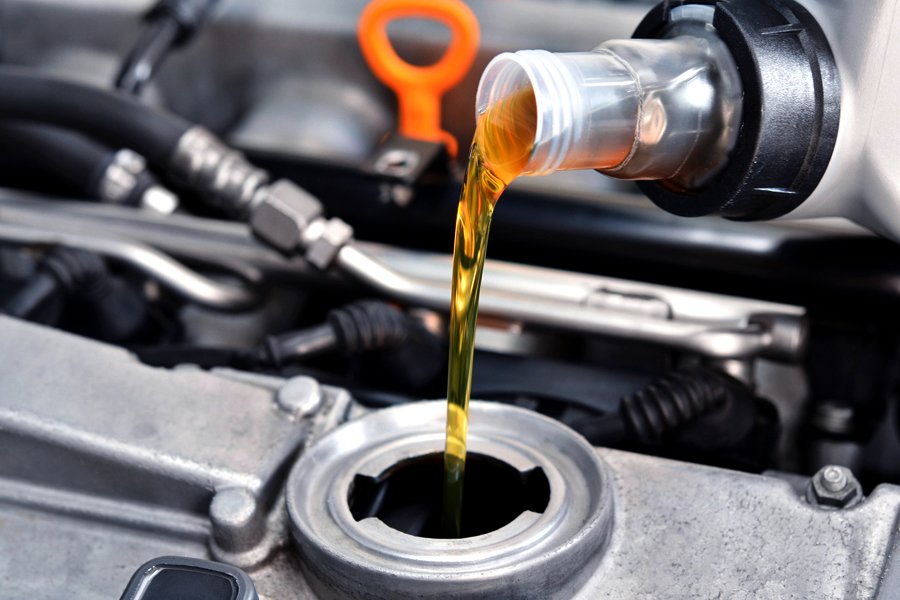
Hydraulic fluid is the lifeblood of hydraulic systems. It enables the transmission of power through pressurized fluid. Understanding how fluid works can help in selecting the right fluid for various applications and ensuring optimal performance.
The Role Of Hydraulic Fluid
Hydraulic fluid serves multiple functions within a hydraulic system. Here are the key roles it plays:
- Power Transmission: Transfers energy from one part of the system to another.
- Lubrication: Reduces friction between moving parts.
- Heat Dissipation: Helps in cooling the system by transferring heat away.
- Contamination Removal: Carries away dirt and debris to be filtered out.
Types Of Hydraulic Fluid
Different applications require specific types of hydraulic fluids. Here’s a brief overview:
- Petroleum-Based Fluids: Widely used for general purposes.
- Synthetic Fluids: Offer better performance in extreme temperatures.
- Water-Based Fluids: Used where fire resistance is crucial.
- Biodegradable Fluids: Environmentally friendly options for sensitive areas.
Hydraulic Fluid Properties
Choosing the right fluid involves understanding its properties. Consider these factors:
- Viscosity: Indicates how thick or thin the fluid is.
- Thermal Stability: Ability to function under varying temperatures.
- Oxidation Resistance: Prevents the fluid from breaking down over time.
- Foam Resistance: Ensures the fluid remains efficient and effective.
How Hydraulic Fluid Circulates
Hydraulic fluid circulates through a closed-loop system. Here’s how it works:
- Pump Activation: The pump pressurizes the fluid.
- Fluid Movement: Pressurized fluid moves through hoses and valves.
- Actuator Operation: Fluid reaches the actuator, causing movement.
- Return Path: Fluid returns to the reservoir, completing the loop.
Maintenance Of Hydraulic Fluid
Proper maintenance is key to the longevity of hydraulic systems. Essential practices include:
- Regular Checks: Inspect fluid levels and condition frequently.
- Filter Changes: Replace filters to remove contaminants.
- Fluid Replacement: Change the fluid as per manufacturer guidelines.
- Monitoring: Use sensors to keep an eye on fluid properties.
Understanding how fluid works is essential for maintaining efficient and reliable systems. Each aspect, from the type of fluid to its circulation and maintenance, plays a critical role in ensuring optimal performance.
Hydraulic Fluid Vs Hydraulic Oil
Hydraulic fluid encompasses various types, including hydraulic oil, each designed to optimize machinery performance. While hydraulic oil serves as a subtype, fluid can also include water-based and synthetic options.
Hydraulic fluid and hydraulic oil are often terms used interchangeably, but they have distinct differences. Understanding these differences is crucial for anyone working with hydraulic systems.
What Is Hydraulic Fluid?
Hydraulic fluid is a broad term that encompasses various types of liquids used in hydraulic systems. It is designed to transmit power and lubricate the moving parts.
What Is Hydraulic Oil?
Hydraulic oil is a specific type of fluid. It is usually made from refined mineral oil and is used to power and lubricate hydraulic machinery.
Key Differences Between Hydraulic Fluid And Hydraulic Oil
Here are some key distinctions between hydraulic fluid and hydraulic oil:
- Composition: Hydraulic oil: usually derived from mineral oil. It can include water-based and synthetic options.
- Function: Hydraulic oil: mainly for lubrication and power transmission. It also includes cooling and sealing functions.
- Usage: Hydraulic oil: common in industrial machinery. It can be found in a wider range of applications, including automotive and aviation.
Applications Of Hydraulic Fluid Vs Hydraulic Oil
Different applications require different properties. Here’s a breakdown:
- Industrial machinery: Hydraulic oil: preferred for consistent performance. Hydraulic fluid: used when specific properties are needed.
- Automotive: Hydraulic fluid: essential for brake systems. Hydraulic oil: less commonly used.
- Aviation: Hydraulic fluid: crucial due to extreme conditions. Hydraulic oil: rarely used.
Why Knowing The Difference Matters?
Knowing the difference between hydraulic fluid and hydraulic oil can save you from costly mistakes. Using the wrong type can lead to system failures and increased wear and tear.
Understanding the nuances between these two can help you make informed decisions. Always check manufacturer guidelines to ensure compatibility and optimal performance.
Characteristics Of A Great Hydraulic Fluid
Hydraulic fluid must possess excellent thermal stability and oxidation resistance. Effective lubrication and high viscosity index ensure optimal performance. Contaminant control and anti-wear properties are crucial for longevity and efficiency.
Choosing the right fluid is crucial for optimal machinery performance. Understanding what makes a great fluid can save you time and money in the long run. Let’s explore the key characteristics that define top-notch hydraulic fluids.
Viscosity
Viscosity is a measure of a fluid’s resistance to flow. It plays a vital role in hydraulic systems.
- Stability: Consistent performance across various temperatures.
- Optimal Flow Rate: Ensures efficient energy transfer.
- Wear Reduction: Minimizes friction between moving parts.
Thermal Stability
Thermal stability is the ability of the fluid to maintain its properties at different temperatures. This is a critical factor for hydraulic fluids.
Hydraulic fluids need to resist oxidation and thermal degradation. This ensures a longer life span and consistent performance.
Lubricity
Lubricity refers to the fluid’s ability to minimize friction between surfaces. High lubricity is essential for reducing wear and extending the life of hydraulic components.
Anti-wear Properties
Effective anti-wear properties are a must-have for hydraulic fluids.
- Component Protection: Shields internal parts from wear.
- Extended Equipment Life: Reduces the need for frequent replacements.
- Cost Efficiency: Lowers maintenance costs.
Corrosion Resistance
Corrosion resistance ensures that hydraulic fluids do not cause rust or corrosion in the system. This characteristic is vital for maintaining the integrity of hydraulic components.
Compatibility With Materials
Hydraulic fluids must be compatible with the materials used in the hydraulic system.
- Seal Compatibility: Prevents leaks and system failures.
- Material Safety: Protects against degradation of hoses, seals, and other components.
- System Integrity: Ensures the fluid does not react negatively with system materials.
Cleanliness
Cleanliness of hydraulic fluid affects the overall system performance.
Contaminants can cause blockages and wear. Always opt for fluids that maintain cleanliness standards to ensure system reliability.
Conclusion
Choosing the right hydraulic fluid is crucial for optimal system performance and longevity. Regular maintenance and monitoring enhance efficiency and reduce downtime. Invest in quality fluid to protect your machinery and ensure smooth operation. Always consult with experts to select the best option for your specific needs.



